|
| |
This week in:
IPSI | Africa | Americas | East Asia | Europe & Central Asia | Middle East | South Asia
|
|
|
|
| |
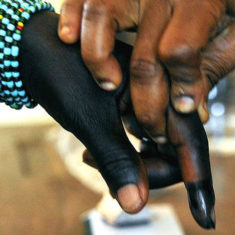
IPSI Intensive: Electoral Security: Analytical Frameworks, Planning, and Administration
Washington, DC
January 11-12, 2018
|
|
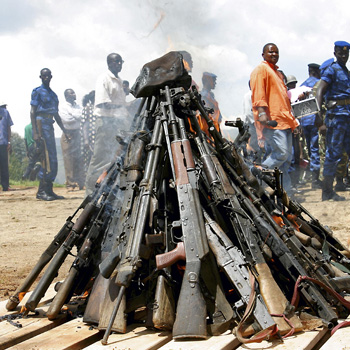
PSI Intensive: Reintegrating Former Fighters, DDR in an Era of Countering Violent Extremism
Washington, DC
January 19-20, 2018
|

IPSI Intensive: The Virtuous Cycle: Building Resilient Governance Systems
Washington, DC
January 27, 2018
|
|
|
|
|
|
| |
This week in Sub-Saharan Africa
|
|
|
|
| |
CAMEROON: Military crackdown on Anglophone separatists
This week, Cameroon’s government ordered thousands of villagers to leave their homes in the Anglophone Southwest as it deploys troops to root out armed separatists who have vowed to loosen President Paul Biya’s long grip on power. The deployment marks an escalation of Biya’s year-long crackdown on peaceful protests in the English-Speaking Northwest and Southwest regions, which has killed dozens of civilians and forced thousands to flee their home in fear of reprisals. President Biya said he is not open to any negotiation on the form of the state and that Cameroon is “one country.” Comment: The separatist movement compounds problems for 84-year-old Biya, who has ruled Cameroon since 1982 and plans to stand for another term next year. The economy has slowed sharply since 2014, while attacks in the far north region by Islamist militant group Boko Haram have strained the military. (Reuters, VOA News, IRIN News)
|
|
|
|
|
| |
DR CONGO: Security forces recruited former rebel fighters to crush anti-Kabila protests
| |
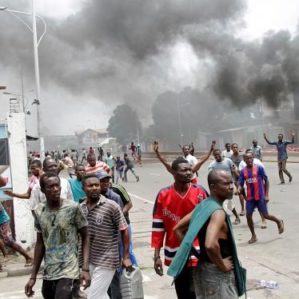
|
On Monday, Human Rights Watch released a report that the Democratic Republic of the Congo (DRC) mobilized more than 200 former M23 fighters during countrywide protests that erupted after President Kabila refused to step down at the end of his term. More than 62 people were killed and hundreds arrested during these protests. The accusations come amid renewed fears that the DRC could witness a repeat of violence. The government has delayed a new vote until December 2018. According to the reports, between October and December 2016, as protests against Kabila escalated, senior Congolese officers drafted the former rebels, gave them new uniforms and weapons, and deployed them to Congo’s main cities, Kinshasa, Lubumbashi, and Goma. The M23 fighters were given explicit orders to use lethal force, including at “point-blank range” if necessary. Comment: President Joseph Kabila took power in 2001 following the assassination of his father, Laurent Kabila. He has won two elections, and the constitution bars him from running for a third term. Mr. Kabila’s critics say the poll has been delayed so that he can remain in office. (Aljazeera, Human Rights Watch, BBC News)
|
|
|
|
|
| |
KENYA: Request to call-off opposition swearing-in plan
On Tuesday, The Principal Deputy Assistant Secretary at the U.S. government’s Bureau of African Affairs, Donald Yamamoto asked the opposition to call off the planned swearing-in ceremony of opposition leader Raila Odinga, scheduled for December 12, saying such a move would only serve to polarize the country further. The opposition has refused to acknowledge Mr. Kenyatta as the duly elected President and insisted that any form of dialogue with the government must entail electoral reforms to laying a roadmap for another election; a stance the government has dismissed. Comment: Mr. Odinga boycotted October’s repeat presidential election and refuses to recognize Uhuru Kenyatta’s victory. Mr. Kenyatta was officially re-elected with 98 percent of the vote on October 26, but just under 39 percent of voters turned out. The original election on August 8 was held again after being annulled by the Supreme Court on the grounds of irregularities. ( The Washington Post, BBC News, Daily Nation, All Africa News)
Researched/Written by Brian Adienge
|
|
|
|
|
| |
This week in the Americas & Caribbean
|
|
|
|
| |
BRAZIL: Rio police capture notorious drug boss amid growing violence
On Wednesday, police in the capital city of Rio de Janeiro arrested Rogerio Avelino da Silva for drug trafficking, extortion, and murder. More than 3,000 police officers participated in the operation resulting in his arrest. State Security Secretary Roberto Sa said officials have been trying to apprehend da Silva for more than 10 years. Comment: Following the Summer 2016 Olympics, violence increased within Rio de Janeiro, and the primary focus of police became apprehending da Silva. (AP News, ABC News, BBC News)
|
|
|
|
|
| |
UNITED STATES: Trump officially recognizes Jerusalem as capital city of Israel
On Wednesday, President Trump officially recognized Jerusalem as the capital city of Israel, stating the U.S. embassy will be moved from Tel Aviv to Jerusalem. Analysts believe this announcement may interfere with reaching a two-state solution between Palestine and Israel. White House aides noted that President Trump will sign a waiver to maintain the current embassy’s location in Tel Aviv, since the move to Jerusalem will require approximately three or four years. Comment: If the waiver is not approved through the State Department, funding to the potential new embassy would be cut off. Protests have begun around the world, including Palestinian protesters burning U.S. and Israeli flags in Gaza City. (NPR, The Washington Post, Reuters, The New York Times, The Hill, ABC News)
|
|
|
|
|
| |
UNITED STATES: Government withdraws from talks over global migration agreement
On Saturday, U.S. Ambassador to the United Nations Nikki Haley announced that the U.S. would cease participating in negotiations about the voluntary migration pact as it clashes with U.S. sovereignty. Critics have called the decision “renewed American isolationism and exceptionalism” towards the United Nations during President Trump’s first year in office. Ambassador Haley stated that the decisions on immigration policies should be made by “Americans and Americans alone.” Comment: Former President Barack Obama’s administration endorsed the resolution, known as the New York Declaration, which would have been fully adopted in 2018. UN Secretary-General Antonio Guterres stated that he was disappointed by the decision, yet remains hopeful that the U.S. will re-engage in talks in the future. (The New York Times, Reuters, SBS News)
Researched/Written by Blessing Ikpa
|
|
|
|
|
| |
This week in East Asia & Pacific
|
|
|
|
| |
AUSTRALIA: Parliament legalizes same-sex marriage
On Thursday, the House of Representatives passed a bill to legalize same-sex marriage. The vote passed with 154 in favor and four against. The marriages will begin to take place in January, abiding Australia’s requirement for all couples to provide a month’s notice prior to marriage. Comment: Australia became the 24th country allowing same-sex marriage. The decision comes two months after Australia conducted a marriage equality postal survey, resulting in 61 percent in favor. (CNN, Daily Telegraph, BBC, The Guardian)
|
|
|
|
|
| |
AUSTRALIA/CHINA: China criticizes Australia’s ban on foreign interference in politics
On Wednesday, China claimed that Australian accounts of Chinese influence and infiltration in Australian politics were “paranoid” and “repeatedly fabricated.” The claims come in response to Australia’s ban of foreign interference, under its revised treason and espionage laws that passed legislation on Tuesday. Under the new law, Australia no longer allows foreign political donations and requires former politicians, lobbyists, and executives to register if they intend to influence Australian politics. The Chinese embassy in Australia said, “China has no intention to interfere in Australia’s internal affairs and/or exert influence on its political process through political donations.” Comment: Chinese involvement in Australian politics was first brought to light after Australian opposition Senator Sam Dastyari accepted a donation from a Chinese businessman and represented the Chinese position on the South China Sea during a press conference. Dastyari was demoted last week. (Washington Post, The Guardian, Reuters)
|
|
|
|
|
| |
NORTH KOREA: Senior UN official visits North Korea
On Tuesday, UN Undersecretary General for Political Affairs Jeffrey Feldman arrived in North Korea to discuss “issues of mutual interest and concern.” His four-day visit marks approximately six years since a high-ranking UN official visited North Korea. A UN spokesperson said that although the meeting may not be groundbreaking, it may act as a framework for engagement. Feldman emphasized the need to find a political solution to the current standoff and stressed the humanitarian situation that currently leaves 70 percent of the population concerned about food security. Comment: The visit coincides with U.S-South Korea’s annual joint military exercises. Both the visit and the drills come after North Korea tested an intercontinental ballistic missile capable of reaching the United States last week. (The Japan Times, The Diplomat, CNN, The Washington Post 1, 2, Reuters 1, 2)
|
|
|
|
|
| |
PHILIPPINES: Amnesty International urges ICC to investigate crimes against children by police forces
| |
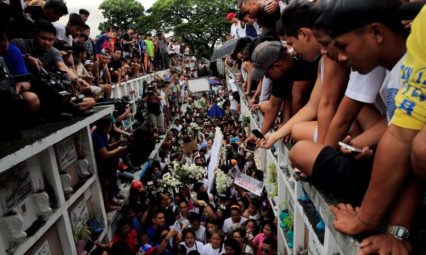
|
On Monday, Amnesty International released a report urging the International Criminal Court to investigate murders and abuses against children as a result of current anti-drug operations by the Philippine Drug Enforcement Agency and national police forces. Since June 2016, 60 children have died in anti-drug operations. Additional children were held in overcrowded and unsanitary holding centers and forced into taking staged photographs with drugs to justify their detention. In August, more than 12 police officers were investigated for the killing of 17 year-old Kian delos Santos, but none have been held accountable yet. According to Amnesty and other Human Rights organizations, the crimes may constitute crimes against humanity. Comment: On Tuesday, President Rodrigo Duterte ordered national police to rejoin the anti-drug operations due to the alleged increase of drug crimes. Duterte removed the national police from the anti-drug project twice in the past; once in January 2017 after an officer involved in the crackdown strangled a South Korean businessman to death, and in October in result of increasing opposition after police allegedly murdered three teenagers. (Amnesty International, Human Rights Watch, Newsweek, The Washington Post, The Guardian 1,2 Reuters)
Researched/Written by Rabia Uddin
|
|
|
|
|
| |
This week in Europe & Central Asia
|
|
|
|
| |
AUSTRIA: Same-sex marriage legalized by high court
On Tuesday, Austria’s constitutional court ruled that same-sex couples should be able to enter into official marriage. Under the previous 2009 law, same-sex couples could only enter registered partnerships, but not official marriage. The court decided that the current law was discriminatory and unnecessarily forced people to disclose their sexual orientation. The new ruling will come into effect December 31, 2018. Comment: Austria is the 16th European Country to legalize same-sex marriage, with the Netherlands being the first in 2001 and Germany being the most recent in June 2017. (The Local Austria, BBC News, The New York Times)
|
|
|
|
|
| |
RUSSIA: Team banned from 2018 Olympics after evidence of state-sponsored doping
| |
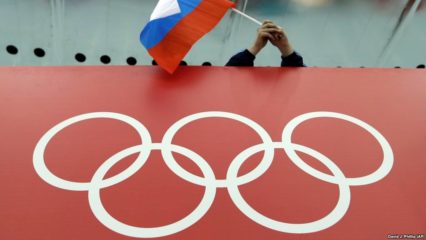
|
On Tuesday, the International Olympic Committee (IOC) banned Russia from participating in the 2018 Winter Olympics in Pyeongchang, South Korea amid evidence of a massive state-sponsored doping system. The World Anti-Doping Agency (WADA) had found evidence that the Russian Department of Sport systematically assisted athletes in using performance enhancing substances from 2012-2015. In addition to the ban, the IOC also imposed a USD 15 million penalty on the Russian government and stripped many athletes of their former medals. Athletes who still wish to compete need to show a history of passing anti-doping tests administered by outside sources and will have to wear neutral uniforms that read “Olympic athlete from Russia.” If they win a gold medal, the Olympic flag will be raised to the Olympic anthem. On Wednesday, President Vladimir Putin announced that Russia will not boycott the Olympics in response and continue to encourage its citizens to participate. Comment: Canadian law professor Richard McLaren released a report in July 2016 charging that Russia’s government, security services and sports authorities hid doping in “a vast majority” of summer and winter sports and confirmed in December 2016 that more than 1,000 Russian athletes had been involved. (The Moscow Times, Radio Free Europe, The Guardian)
|
|
|
|
|
| |
UNITED KINGDOM: London Mayor calls for official apology for 1919 Indian massacre
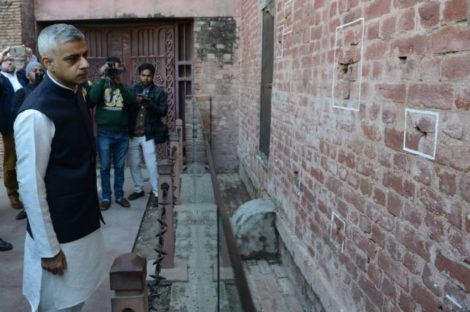
|
|
On Tuesday, London Mayor Sadiq Khan visited Amritsar, India and called on the British government to officially apologize for the 1919 massacre of unarmed protesters by British soldiers. . On April 13, 1919, 500 British soldiers blocked exits of a walled garden, known as Jallianwala Bagh, and opened fire on Sikhs who were protesting colonial rule. An estimated 400 people were killed, though that number is still disputed. In his comments, Khan argued, “I’m clear that the government should now apologize, especially as we reach the centenary of the massacre. This is about properly acknowledging what happened here and giving the people of Amritsar and India the closure they need through a formal apology.” Khan is the only high ranking official who has called for an official apology from the government for this massacre. Comment: Khan is not the first British official to pay respects at Jallianwala Bagh. Queen Elizabeth, her husband Prince Phillip, and former Prime Minister David Cameron have all visited the site. David Cameron called the event “a deeply shameful event in British history,” but stopped short at issuing an official apology. (BBC News, The Times of India, Reuters)
|
|
|
|
|
| |
UNITED KINGDOM: Man appears in court after failed plan to assassinate Prime Minister May
On Wednesday, 20-year old Naa’imur Rahman appeared in Westminster Magistrates Court under charges of “intention of committing acts of terrorism” and “engaging in conduct in preparation for giving effect to that intention.” Prosecutor Mark Carroll alleges that Rahman planned to detonate an improvised explosive device at the gates of 10 Downing Street in order to gain entrance to Prime Minister Theresa May’s office and kill her. Rahman gave no indication of plea and a not guilty plea was entered on his behalf. Comment: UK Security officials have stated that this is the ninth alleged Islamist plot to have been stopped since March of this year. The MI5 director-general stated in a recent speech that the heightened terrorist threat level currently in the UK is the worst he has known in his 34-year career. (The Guardian, The Washington Post, Reuters)
Researched/Written by Amy Pipher
|
|
|
|
|
| |
This week in the Middle East & North Africa
|
|
|
|
| |
KUWAIT: Two-Day GCC Summit ends abruptly hours after starting due to Qatar crisis
| |
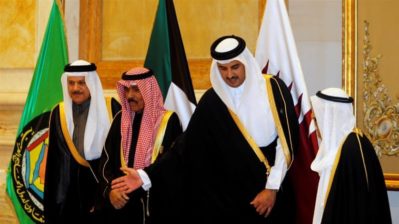
|
On Tuesday, the two-day 38th annual Gulf Cooperation Council (GCC) Summit held in Kuwait City fell apart hours of starting due to the continued boycott of Qatar by three other GCC members: Saudi Arabia, Bahrain, and the United Arab Emirates (UAE). The summit was derailed when the UAE announced a new partnership with Saudi Arabia to coordinate “all military, political, economic, trade and cultural fields,” essentially supplanting the basic goal of the GCC; the move was seen by many as an attempt to scuttle a possible reconciliation agreement with Qatar. In a further snub to Qatar, its delegation, led by its head of state Sheikh Sheikh Tamim bin Hamad al-Thani, was greeted by lower-ranking officials from Saudi Arabia, Bahrain, and the UAE. The GCC announced that the next summit will be held in Saudi Arabia and chaired by Oman. Comment: The Kuwait summit takes place exactly six months after three of the member states severed diplomatic and trade ties with Qatar. Kuwait, who had previously attempted to reconcile the Qatar Crisis, intended to use the summit to jump-start a new dialogue between them. (Al Jazeera, Gulf News, AP)
|
|
|
|
|
| |
PALESTINE: Tensions flare over U.S. decision to recognize Jerusalem as Israeli Capital
| |
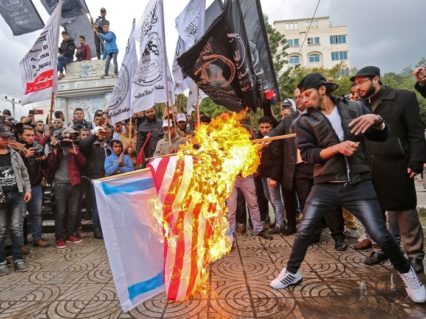
|
On Thursday, Palestinians called for three “days of rage” and for the closure of local schools and stores in response to U.S. President Donald Trump’s announcement on Wednesday recognizing Jerusalem as Israel’s capital. Thousands of protestors took to the streets and clashed with Israeli Defense Forces in numerous cities throughout the West Bank, including Ramallah, Jericho, and East Jerusalem. Thus far, more than 49 protestors have been injured, with 16 being sent to the hospital. Palestinian leadership condemned the decision as “the kiss of death to the two-state solution” and that it undermines the U.S. as a credible mediator to the conflict. The governments of Jordan, Egypt, Iran, Saudi Arabia, Turkey, and others joined the Palestinian leadership in rebuking the decision, saying it stokes and inflames Muslim sentiments across the world. Comment: The United States passed the Jerusalem Embassy Act in 1995, mandating that the U.S. embassy move from Tel Aviv to Jerusalem. Every President since its passing has waived the requirement to move the embassy, citing its importance for negotiations in a future peace agreement between Israel and the Palestinians. (Haaretz, Al Jazeera, New York Times, Reuters)
|
|
|
|
|
| |
YEMEN: Former Yemeni President Ali Abdullah Saleh killed in Sanaa
On Monday, the former president of Yemen was stopped at a Houthi checkpoint and killed while trying to flee the capital Sanaa. Saleh and his faction were formally aligned with the Iranian-backed Houthi rebels against Yemen’s internationally recognized government and the Saudi-led military coalition until Saturday, when he announced he would strike a deal with Saudi Arabia if they agreed to stop fighting and end the blockade. The announcement caused an outbreak of violence between the two factions, with the Houthis calling Saleh a traitor. Houthi rebels were jubilated over the news and released a video of Saleh’s corpse chanting “Praise be to God” and “Hey Ali Affash!”—the name of Saleh’s clan. On Tuesday, his exiled son, Ahmed Ali Saleh, called on his father’s supporters to push the Houthis out of Sanaa and avenge his death. Saleh’s death complicates the prospects for future peace process efforts. Comment: Saleh became President of North Yemen in 1978 and ruled for 33 years, overseeing the unification of North and South Yemen and two civil wars before being ousted in Yemen’s Arab Spring uprising. The current civil war has resulted in what analysts call the world’s worst humanitarian crisis, with the International Red Cross reporting at least 234 deaths and more than 400 wounded in Sanaa alone since the start of December. (Al Jazeera, New York Times, BBC 1, 2)
Researched/Written by Zachary Libow
|
|
|
|
|
| |
AFGHANISTAN: Top al-Qaeda leader amongst those killed in joint military operation
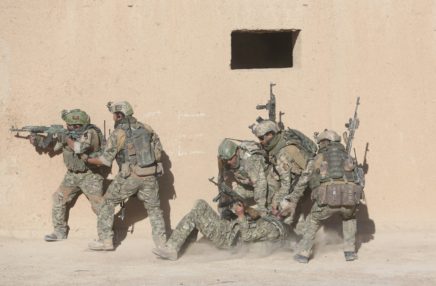
|
|
On Tuesday, the National Directorate of Security (NDS) of Afghanistan announced that top al-Qaeda leader Omar bin Khetab was one of about 80 militants killed in a series of joint operations by the Afghan military and NATO-led forces. U.S. officials described bin Khetab, also known as Omar Mansoor, as the No. 2 leader of al-Qaeda in the Indian Subcontinent (AQIS), directly involved in fighting Afghan and coalition troops and advising the Taliban on the use of night attacks. U.S. Commander in Afghanistan, Army General John W. Nicholson Jr., said that AQIS continues to provide the Taliban with bombmaking and weapons training, but stated that the U.S. and Afghan government “will continue to aggressively target Taliban leaders to destroy their drug network, disrupt their communications and deny them safe haven.” Comment: The NDS claims bin Khetab is the “seniormost al-Qaeda leader killed in Afghanistan since 2001.” Bin Khetab’s death has been denied and called “propaganda” by the Taliban’s spokesman, who claimed that no militants were killed in any recent military operations. (Khaama Press, India Today, Washington Post, Reuters)
|
|
|
|
|
| |
INDIA: Government to expand payment scheme to incentivize inter-caste marriage
| |
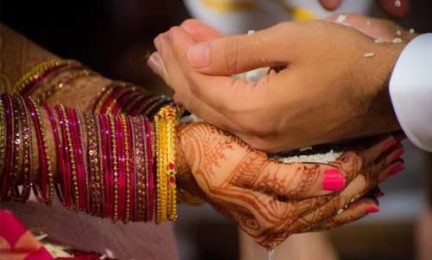
|
On Wednesday, the Ministry of Social Justice and Empowerment announced that inter-caste couples, where one individual is a higher caste Hindu and the other is a member of the Dalit caste, would now be eligible for 250,000 rupees cash incentive for marriage, regardless of their total annual income. This is an update to a program previously instated by the Modi government in 2013, which offered a monetary incentive for inter-caste couples only if they made less than 500,000 rupees per year. The scheme was implemented to encourage inter-caste marriage and promote social cohesion, foreseeing about 500 inter-caste marriages per year, though less than 100 such marriages have taken place each year. Comment: Many, including the secretary general of the All-India Christian Council, see the scheme as “fundamentally misconceived” for trying to change a millennia-old discriminatory caste system economically rather than culturally. Members of the Dalit caste have been considered to be “untouchable” and have suffered thousands of years of exclusion and discrimination. (NDTV, Indian Express, The Guardian, BBC)
|
|
|
|
|
| |
PAKISTAN: Peace activist missing and reportedly abducted after organizing public event
On Wednesday, family and friends of missing peace activist Raza Mahmoud Khan stated that they fear he has been forcibly disappeared. Khan, a member of the Pakistani-Indian peacebuilding group Aghaz-i-Dosti, was reported missing over the weekend in Lahore after helping organize a discussion on the topic of extremism. A protest in support of Khan is planned for later this week. Comment: A number of activists who have spoken out against Pakistan’s ruling military have disappeared over the past few months, allegedly abducted by Pakistani intelligence. Two activists who were released in January have claimed that they were tortured and interrogated by Pakistani intelligence agents. Hundreds of other reportedly missing persons were traced to being held in military-operated internment camps without charges. The Pakistani military and intelligence services deny any involvement with the disappearances. (Channel News Asia, Al Jazeera 1, 2, BBC, Reuters)
Researched/Written by Natalie A. Landau
|
|
|

|
|